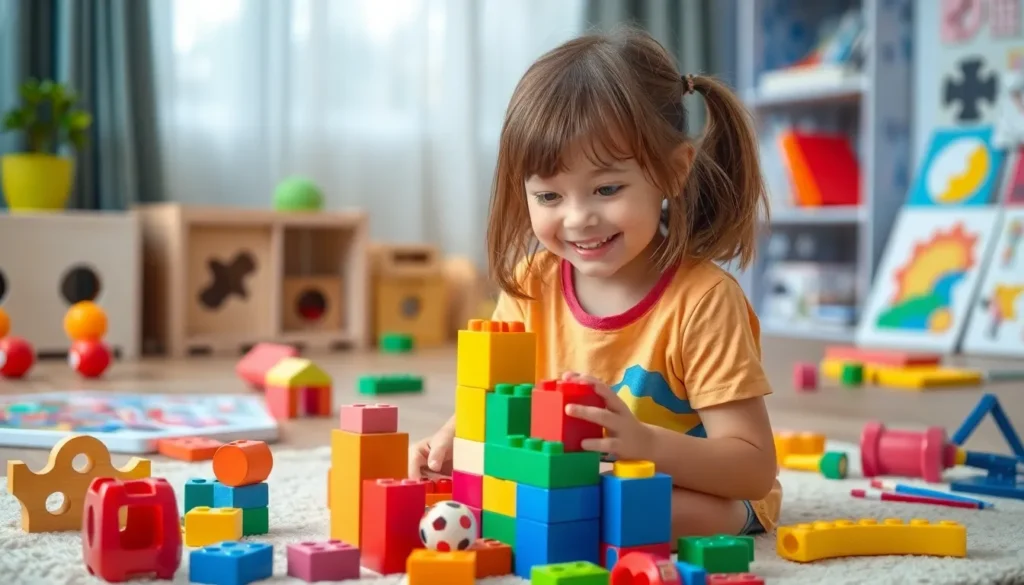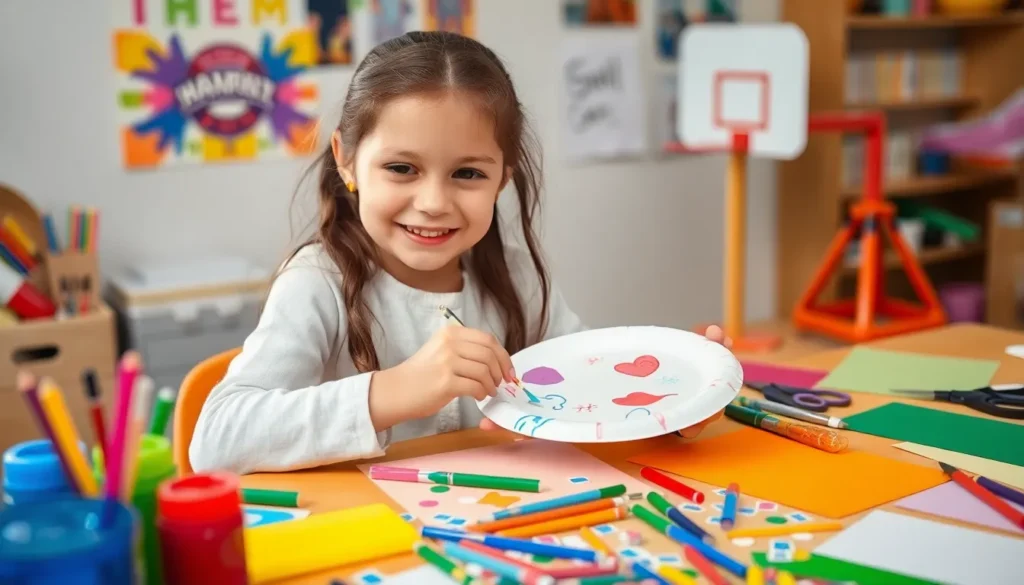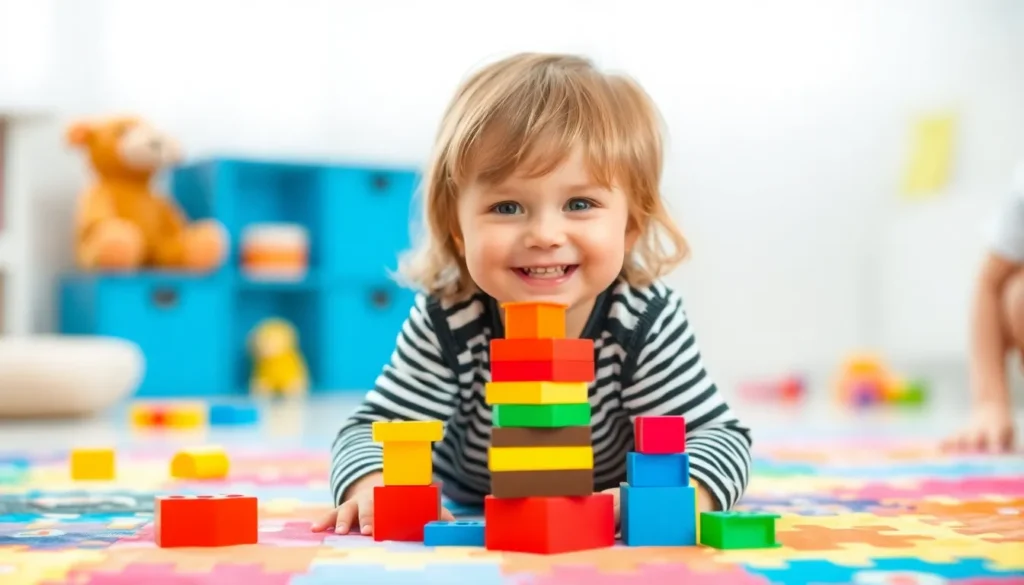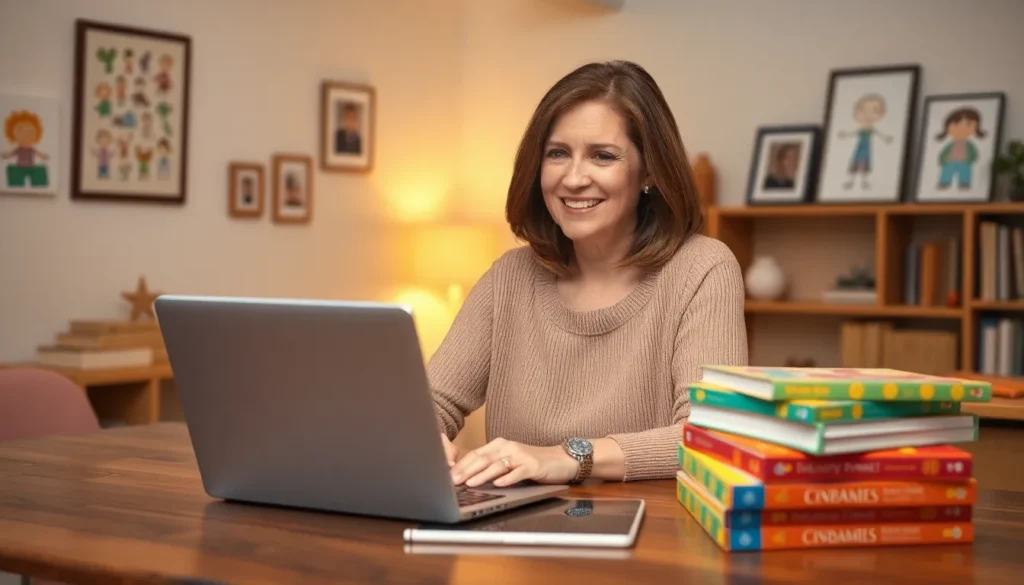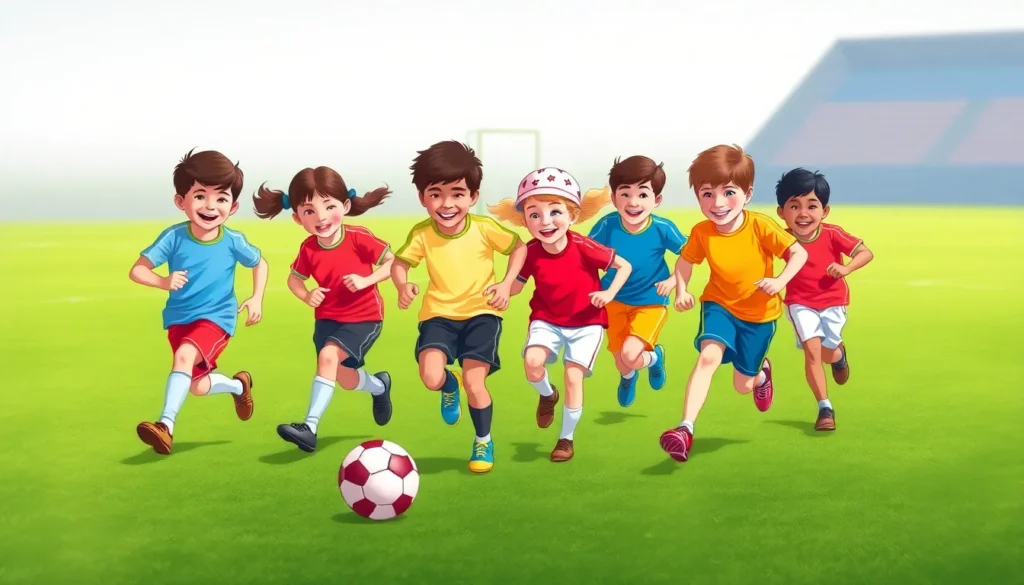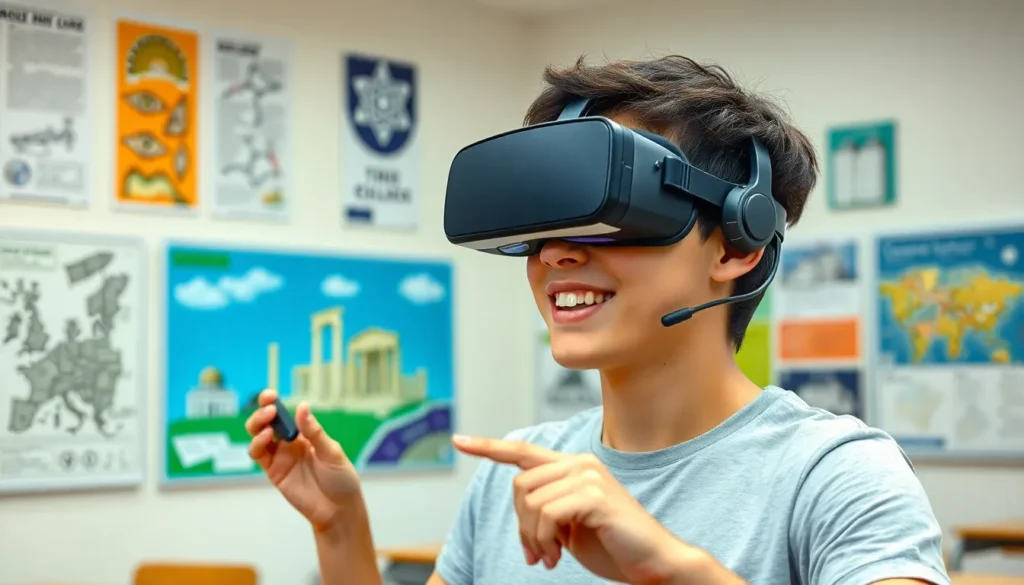Finding the right sport for kids with ADHD can feel like searching for a needle in a haystack—if that needle were a hyperactive squirrel on roller skates. But don’t fret! Engaging in sports can be a game-changer for children with ADHD, helping them channel their energy, improve focus, and build social skills.
Table of Contents
ToggleUnderstanding ADHD in Kids
ADHD significantly affects children, impacting their behavior, focus, and interactions. Recognizing its symptoms helps parents and caregivers support affected kids effectively.
Common Symptoms
Common symptoms of ADHD in kids include inattention, hyperactivity, and impulsivity. Inattention manifests as difficulty maintaining focus on tasks. Children may frequently lose items like toys or school supplies. Hyperactivity often leads to excessive movement, fidgeting, or running about. Impulsivity results in hasty decisions or interruptions in conversations. Many kids with ADHD struggle with following through on instructions and completing homework tasks. Awareness of these symptoms plays a crucial role in identifying ADHD.
Impact on Daily Life
Daily life for children with ADHD can be challenging. School performance may suffer due to difficulty concentrating or organizing assignments. Social interactions often become strained because impulsive behavior disrupts friendships. Family dynamics may also be affected when managing ADHD-related behaviors becomes overwhelming. Kids may encounter difficulty engaging in structured activities, leading to frustration or low self-esteem. By understanding these impacts, parents can seek appropriate strategies and support for their children.
Benefits of Sports for Kids with ADHD
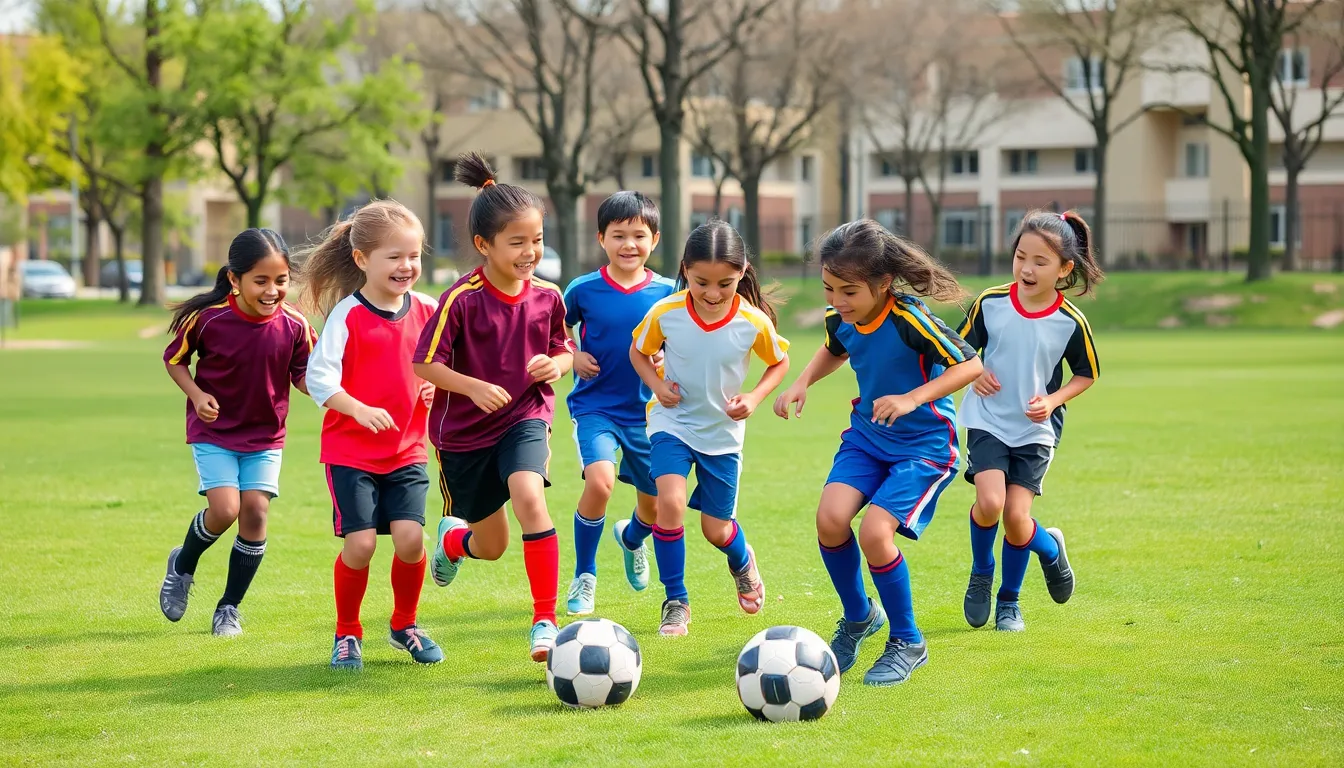
Engaging in sports offers multiple advantages for children with ADHD. These benefits extend beyond enjoyment, enhancing various aspects of their lives.
Physical Health Improvements
Physical activity significantly boosts cardiovascular health. Regular participation in sports improves muscle strength and coordination. Additionally, it aids in weight management, reducing the risk of obesity. Enhanced physical fitness also fosters better sleep patterns, providing essential rest for children. Research indicates that exercise increases serotonin levels, positively affecting mood. Thus, engaging in sports leads to improved overall health and wellness.
Social Skill Development
Participating in team sports promotes social interactions, fostering friendships among peers. Collaborative activities teach kids essential communication skills, including listening and cooperation. Moreover, teamwork encourages problem-solving abilities, enhancing critical thinking. Observing and mimicking appropriate social behaviors in a sports setting aids in developing social awareness. Ultimately, these experiences build self-esteem, empowering children to interact confidently with others.
Best Sports for Kids with ADHD
Engaging in sports can significantly benefit kids with ADHD. The right sports can enhance focus, channel energy, and develop vital social skills.
Individual Sports
Individual sports can offer children with ADHD opportunities to work at their own pace. Activities like swimming require concentration and help improve physical endurance. Martial arts, such as karate or judo, teach discipline while boosting self-esteem through noticed progress. Activities like gymnastics encourage balance and coordination, fostering motor skills and focus. Each sport provides a structured environment where children can succeed individually, thus enhancing their confidence.
Team Sports
Team sports can cultivate social skills and teamwork among kids with ADHD. Soccer promotes quick decision-making and enhances communication with teammates. Basketball requires coordination and helps with sharing the ball, reinforcing the importance of collaboration. Baseball builds patience and waiting skills, connecting children with their peers through shared goals. Engaging in these sports often leads to friendships, improves self-esteem, and supports emotional well-being.
How to Encourage Participation
Encouraging children with ADHD to participate in sports requires understanding and a thoughtful approach. Parents and caregivers should consider individual interests and strengths when selecting activities.
Finding the Right Sport
Assessing each child’s preferences is essential for identifying the right sport. Swimming and martial arts often appeal due to their focus on personal development and individual pace. Team sports like soccer or basketball foster social connections, enhancing teamwork skills. Engaging children in varied trial classes helps them discover which sports ignite their enthusiasm. Consulting with coaches familiar with ADHD can provide further guidance, ensuring suitable matches for each child’s unique needs.
Creating a Supportive Environment
Creating a supportive environment maximizes children’s participation and enjoyment. Establishing consistent routines helps children feel secure, making it easier to commit to regular practice. Structured encouragement leads to greater success and reinforces positive behavior. Open communication with coaches enhances understanding and fosters a sense of belonging. Celebrating small achievements boosts confidence, affirming their progress. Involving siblings or friends can also make sports more enjoyable, promoting teamwork and camaraderie while enhancing social interactions.
Tips for Parents and Coaches
Effective strategies enhance the experience of children with ADHD in sports. Focusing on communication and setting realistic goals fosters understanding and promotes success.
Communication Strategies
Establishing open lines of communication between parents, coaches, and children is essential. Sharing concerns about ADHD symptoms helps everyone understand each child’s unique needs. Utilizing clear language ensures that children comprehend instructions and expectations. Active listening encourages kids to express their feelings about sports participation. Checking in frequently allows parents to gauge their child’s comfort and enjoyment levels. Encouraging feedback from coaches regarding behavior and progress fosters a supportive environment. Collaborating with coaches familiar with ADHD enhances their ability to provide tailored guidance.
Setting Realistic Goals
Setting achievable goals supports children with ADHD in sports. Defining specific, measurable objectives allows kids to track their progress effectively. Prioritizing small milestones contributes to a sense of accomplishment. Engaging children in the goal-setting process boosts their motivation. Recognizing individual strengths ensures that goals align with each child’s abilities. Adjusting expectations based on performance helps maintain a positive experience. Celebrating successes, no matter how small, reinforces the effort and encourages continued participation.
Finding the right sports for kids with ADHD can be transformative. Engaging in physical activities not only channels their energy but also fosters essential skills like focus and teamwork. By considering each child’s unique interests and strengths parents can help them discover sports that resonate.
Creating a supportive environment enhances the experience. Consistent routines and open communication with coaches build confidence and a sense of belonging. With the right approach sports can become a powerful tool for personal growth and social development in children with ADHD. Embracing this journey can lead to lasting benefits that extend beyond the playing field.


